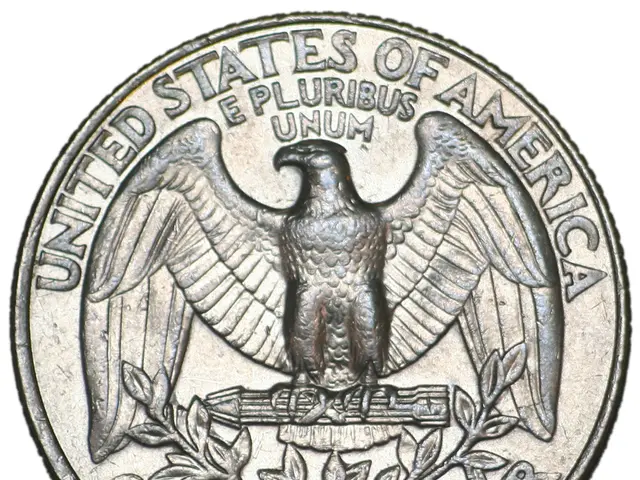Books Standard-Setting for Wealth Enhancement: Fortify Your Financial Worth with These Titles
In the diverse, intricate world of finance, amassing wealth goes beyond just earning a generous income—it demands financial literacy, strategic planning, and disciplined habits. These five exceptional books on wealth-building transcend trendy advice and quick fixes, offering profound financial wisdom that, when consistently applied, can boost your net worth significantly.
1. The Psychology of Money by Morgan Housel
First published in 2020, "The Psychology of Money" quickly became a modern classic in financial literature. This engaging read moves away from conventional personal finance books focusing on formulas and spreadsheets. Instead, Housel explores the human side of money through 19 short stories, presenting how behaviors and mindsets ultimately shape our financial outcomes.
Housel highlights a truth often neglected in financial education: "Doing well with money has little to do with how smart you are and a lot to do with how you behave." The book demonstrates how emotional reactions, cognitive biases, and personal history shape our financial decisions, often to our detriment.
One of the book's most powerful insights revolves around compounding, not just financial returns, but of habits and decisions. Small, prudent financial choices, when sustained consistently, lead to remarkable wealth accumulation. On the flip side, even brilliant investors may squander their fortunes through poor behavioral choices.
Housel identifies several cognitive pitfalls that hamper wealth-building, such as recency bias (overemphasizing recent events) and outcome bias (judging decisions based on results rather than process). By recognizing these patterns, the book provides tools for making more rational, informed financial decisions.
At heart, this book isn't about discovering the highest-yield investment or precisely timing market swings. Instead, it's about embracing reasonable financial behaviors and applying them through life's ups and downs. For Housel, wealth isn't primarily about income or investment returns; it's about your savings rate and the ability to resist self-destructive financial habits.
2. The Millionaire Next Door by Thomas J. Stanley and William D. Danko
Originally published in 1996, "The Millionaire Next Door" shattered conventional misconceptions about wealth, presenting extensive research on actual millionaires rather than theoretical advice. Stanley and Danko's groundbreaking study found that most millionaires live unpretentious lives, prioritizing savings, diligent spending, and steady wealth accumulation over conspicuous consumption.
The authors distinguished between "UAWs" (Under Accumulators of Wealth) and "PAWs" (Prodigious Accumulators of Wealth), helping readers assess their wealth-building effectiveness relative to their income. More intriguingly, over 80% of American millionaires are first-generation wealthy—they built their fortunes themselves rather than inheriting it. These self-made millionaires share seven common traits, including:
- Living well below their means
- Allocating time and money efficiently toward wealth accumulation
- Believing financial independence is more important than social status
- Choosing the right occupation
The book encourages readers to shift their focus from high consumption to high net worth through disciplined financial habits. Its enduring message—that sustainable wealth comes from spending less than you earn and investing the difference consistently—remains relevant today.
3. Rich Dad Poor Dad by Robert Kiyosaki
Since its publication in 1997, "Rich Dad Poor Dad" has become one of the bestselling personal finance books, changing how millions perceive wealth creation. Via a narrative of life lessons gleaned from his father (the "Poor Dad") and a friend's businessman father ("Rich Dad"), Kiyosaki offers key insights about financial education, wealth creation, and assets vs. liabilities.
The book's seminal teaching is its definition of assets versus liabilities. While traditional accounting has technical definitions for these terms, Kiyosaki simplifies them: assets put money into your pocket, while liabilities take money out. This fundamental distinction helps readers evaluate purchases and investments with clarity.
Kiyosaki critiques conventional wisdom about careers, education, and retirement planning. He advocates financial education, passive income streams, and understanding how money works instead of merely working for money. The book introduces the concept of the "rat race"—the cycle of earning and spending that keeps even high-income professionals from achieving financial freedom—and provides strategies for escaping it.
The core message about financial literacy and building assets rather than accumulating liabilities empowers countless readers to reconsider their approach to wealth creation. The key takeaway is to build assets that create enough cash flow to make you financially independent; these assets will naturally boost your net worth.
4. Your Money or Your Life by Vicki Robin and Joe Dominguez
First published in 1992 and updated several times (most recently in 2018), "Your Money or Your Life" offers a holistic approach to personal finance, considering more than numbers to explore the relationship between money, time, and life satisfaction. The book presents a nine-step program for transforming your relationship with money and achieving financial independence.
The authors introduce the concept of money as life energy—valuing every penny based on how many life hours went into earning it. By calculating real hourly wages accounting for all work-related time and expenses, you gain clarity about how much you truly spend on purchases. This approach often leads to more conscious spending aligned with personal values.
The book guides readers through tracking every penny that enters or leaves their lives, evaluating expenditures by asking if they offered equivalent satisfaction compared to life energy spent, and reducing expenses while maximizing income. The ultimate goal is reaching the "crossover point" where investment income exceeds expenses, achieving true financial independence.
The book's environmentally conscious approach to consumption and wealth resonates with today's increasing sustainability awareness. By questioning our endless pursuit of more, readers often discover that they need less than they thought to live well, advancing their path to financial freedom. The book focuses on building a net worth where the investment returns make you financially independent.
5. The Total Money Makeover by Dave Ramsey
Initially published in 2003 and updated several times, "The Total Money Makeover" delivers a straightforward, step-by-step approach to achieving financial peace. Unlike other financial books that offer complex strategies or theoretical frameworks, Ramsey presents a clear roadmap anyone can follow regardless of financial situation.
The cornerstone of Ramsey's approach is the "7 Baby Steps" framework, which begins by building a $1,000 emergency fund and progresses through debt elimination, funding an emergency fund, retirement investing, college funding, mortgage payoff, and building wealth to share. This sequential approach provides clarity amidst the chaos of managing finances.
Ramsey's anti-debt stance and "debt snowball" method—paying off debts from smallest to largest regardless of interest rates—have helped countless people become debt-free. While mathematically counterintuitive, the psychological wins from eliminating small debts first create momentum that helps people stay motivated throughout their journey.
The book emphasizes financial resilience via proper emergency funding and insurance, preventing setbacks from derailing progress. Ramsey's straightforward investment philosophy centers on long-term, consistent investing rather than market timing or get-rich-quick schemes. What sets "The Total Money Makeover" apart is its behavioral approach to finance. Ramsey understands the role of personal finance in people's lives and designing his program to improve their finances sustainably.
- The Psychology of Money by Morgan Housel reinforces that financial success is predominately a result of behavior and mindset rather than just income or investment returns, emphasizing the importance of emotional intelligence, rational decision-making, and self-discipline in building wealth.
- In The Millionaire Next Door, Thomas J. Stanley and William D. Danko assert that a majority of self-made millionaires prioritize efficient spending, time management, and wealth accumulation over conspicuous consumption, underscoring the critical role that saving, investing, and personal financial management play in increasing net worth.






